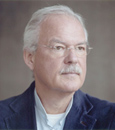
Stefan H.E. Kaufmann
Thursday, 18 November at 18:00 in the Print Media Academy, Kurfürstenanlage 52-60, Heidelberg
Mit freundlicher Unterstützung der Manfred Lautenschläger Stiftung in Zusammenarbeit mit dem Netzwerk Alternsforschung
Stefan H. E. Kaufmann, Max Planck Institute for Infection Biology, Berlin
Pandemics: Of perceived and real threats
Abstract
Victory over infectious diseases has been claimed often. Each time the hope has been dashed. Pandemics receive highest attention, i e. those new diseases which have the potential to conquer our globe rapidly. HIV/AIDS is a frightening example of this. With the swine flu H1N1 our fears turned out to be unfounded. Some infectious diseases are largely ignored because they have been with us forever. One example is tuberculosis, which together with HIV/AIDS belongs to the deadliest of threats. Yet, 2 billion individuals, about one third of the total world population, are infected with the etiologic agent Mycobacterium tuberculosis. Every year, we witness approximately 10 million new cases of active tuberculosis, of which one-quarter are fatal.
Even though we have drugs to treat tuberculosis, numbers of multi-resistant infections are on the rise. Today 50 million people live with multidrug-resistant tubercle bacilli which are hard to treat. Some even suffer from extensively resistant tuberculosis which is virtually untreatable. A vaccine is also available: bacilli Calmette-Guérin (BCG). This vaccine, however, only prevents serious forms of disease in toddlers. It is ineffective against the most prevalent disease form, pulmonary tuberculosis in adults.
In the mid- and long-term we therefore need new drugs and vaccines against tuberculosis. In our laboratory we have developed a recombinant BCG vaccine, which has proven highly effective and safe in pre-clinical studies and is currently being assessed in clinical trials. Clinical trials for vaccines against TB, however, are tedious, long-term endeavours. One possibility to accelerate such efforts is offered by biomarkers, which predict the clinical endpoint of a vaccine trial, i.e., outbreak of active disease or its prevention.
With financial support from the Bill and Melinda Gates Foundation, our team, together with numerous partners in Africa, is attempting to identify biomarkers of protection against tuberculosis. Research in the area of tuberculosis has increased in recent years, yet, it is still insufficient due to neglect of research and development (R&D). Currently, approximately 500 million USD are spent on R&D in tuberculosis, every year. However, annually at least 2 billion USD are needed to reach the ambitious goal of eliminating tuberculosis by the year 2050 (i.e., < 1 case per 1 million inhabitants). Financially this could be profitable because tuberculosis currently consumes 20 billion USD annually.
Biography
Founding director and director of the Department of Immunology of the Max Planck Institute for Infection Biology in Berlin. Professor for microbiology and immunology at the Charité, Humboldt University, Berlin, and honorary professor at the University Clinics Benjamin Franklin, Free University Berlin. Past president and honorary member of the German Society for Immunology. Past President of the European Federation of Immunological Societies (EFIS). President of the International Union of Immunological Societies (IUIS). Born 1948 in Ludwigshafen am Rhein. Studied biology at the Johannes Gutenberg University of Mainz, 1977 PhD (highest degree, summa cum laude). From 1987 to 1991 professor for medical microbiology and immunology, and from 1991 to 1998 full professor for immunology at the University of Ulm. Scientific interests: immunity to bacterial pathogens with emphasis on tuberculosis and rational vaccine design. Co-Developer of a recombinant BCG-vaccine candidate which has passed phase I-clinical trial successfully. Representative of research and technological health institutes as Alternate Board Member of GAVI Alliance (Global Alliance for Vaccines and Immunisation). Initiated the Day of Immunology to raise public awareness in immunology. Numerous scientific awards (e.g. A. Krupp Prize for Young Professors, 1987, Aronson Prize of the state of Berlin 1988, Young Investigator Award (1983) and Investigator Award (1993) of the German Society for Hygiene and Microbiology). Doctor Honoris Causa from Université de la Mediterranée, Aix-Marseille II. Coordinator of several international and interdisciplinary projects including Grand Challenge 6 by the Bill and Melinda Gates Foundation. More than 600 publications mostly in high-ranking journals. Highly cited immunologist (ISI Thomson). Editor or member of editorial boards of more than 20 international scientific journals. Member of various professional societies, e.g. German Society for Immunology, American Academy of Microbiology, Berlin-Brandenburg Academy of Sciences, and German Academy of Natural Sciences ‘Leopoldina’ and World Innovation Foundation, Honorary Member of the German Society for Immunology.